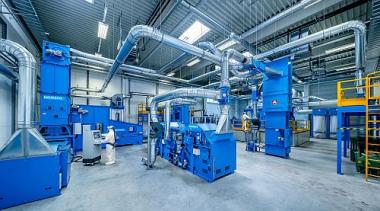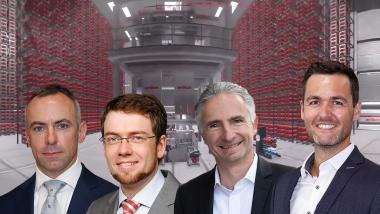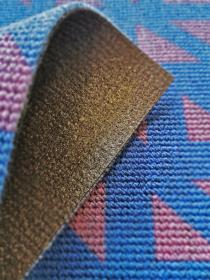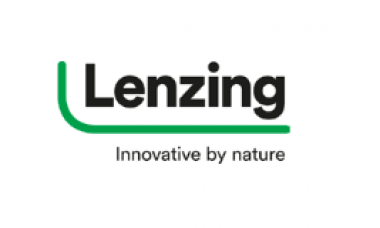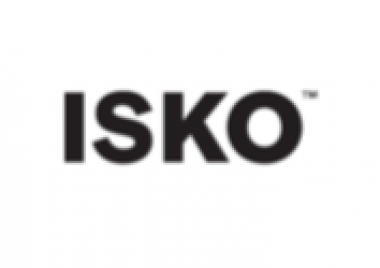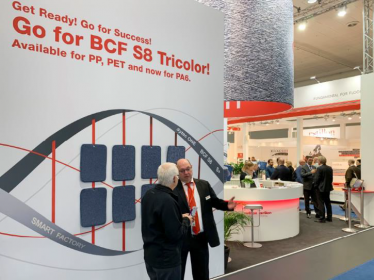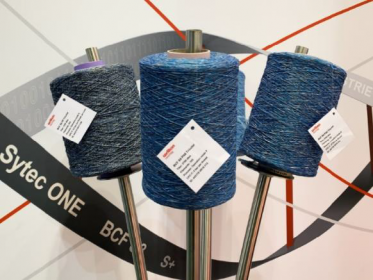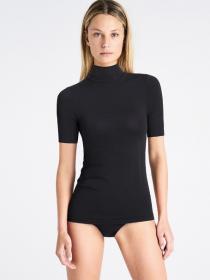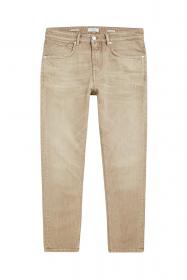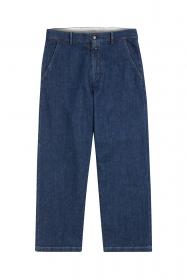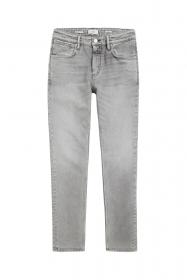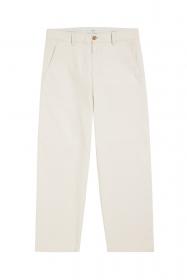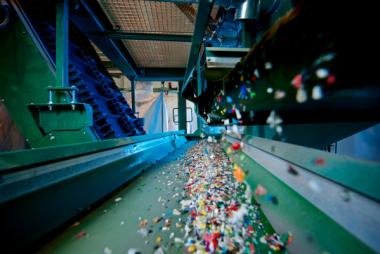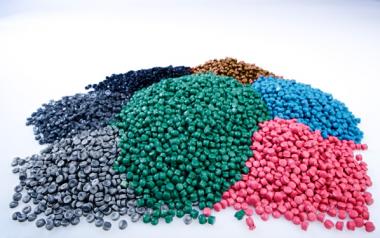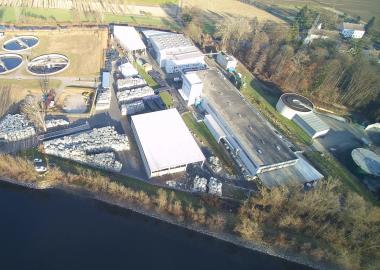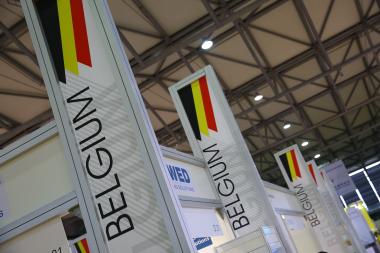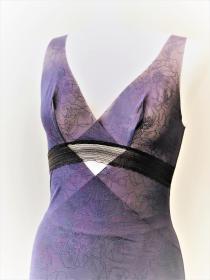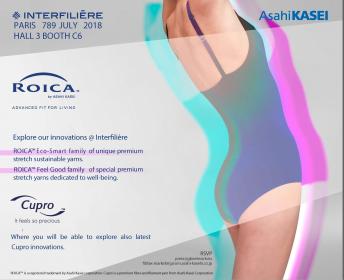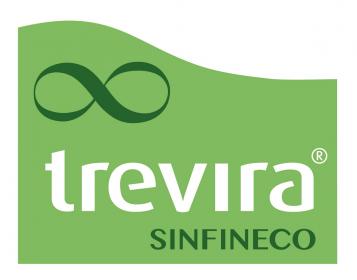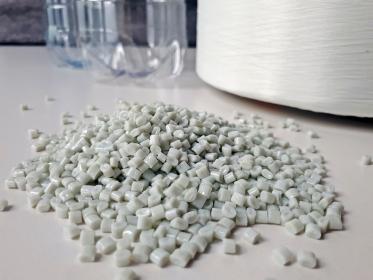Innovationen beim Recycling von Carbonfasern
- Kohlenstoff mit mehreren Leben
Geht es um die Zukunft der motorisierten Mobilität, reden alle vom Antrieb: Wie viel E-Auto, wie viel Verbrenner verträgt die Umwelt und braucht der Mensch? Zugleich stellen neue Antriebe erhöhte Anforderungen nicht nur an den Motor, sondern auch an dessen Gehäuse und die Karosse: Für solch anspruchsvolle Anwendungen kommen häufig Carbonfasern zum Einsatz. Wie der Antrieb der Zukunft, sollten auch die Werkstoffe am Fahrzeug umweltfreundlich sein. Deshalb ist Recycling von Carbonfasern gefragt. Lösungen dafür haben Institute der Zuse-Gemeinschaft entwickelt.
Carbonfasern, auch als Kohlenstofffasern oder verkürzt als Kohlefasern bekannt, bestehen fast vollständig aus reinem Kohlenstoff. Sehr energieaufwändig wird er bei 1.300 Grad Celsius aus dem Kunststoff Polyacrylnitril gewonnen. Die Vorteile der Carbonfasern: Sie haben kaum Eigengewicht, sind enorm bruchfest und stabil. Solche Eigenschaften benötigt man z.B. am Batteriekasten von E-Mobilen oder in Strukturbauteilen der Karosserie. So arbeitet das Sächsische Textilforschungsinstitut e.V. (STFI) aktuell gemeinsam mit Industriepartnern daran, statisch-mechanische Stärken der Carbonfasern mit Eigenschaften zur Schwingungsdämpfung zu verknüpfen, um die Gehäuse von E-Motoren im Auto zu verbessern. Angedacht ist in dem vom Bundeswirtschaftsministerium geförderten Projekt die Entwicklung sogenannter Hybridvliesstoffe, die neben der Carbonfaser als Verstärkung weitere Faserstoffe enthalten. „Wir wollen, die Vorteile unterschiedlicher Faserstoffe verbinden und so ein optimal auf die Anforderungen abgestimmtes Produkt entwickeln“, erläutert Marcel Hofmann, STFI-Abteilungsleiter Textiler Leichtbau.
Damit würden die Chemnitzer Forschenden bisherige Vliesstoff-Lösungen ergänzen. Sie blicken auf eine 15-jährige Geschichte in der Arbeit mit recycelten Carbonfasern zurück. Der globale Jahresbedarf der hochwertigen Fasern hat sich im vergangenen Jahrzehnt fast vervierfacht, laut Angaben der Industrievereinigung AVK auf zuletzt rd. 142.000 t. „Die steigende Nachfrage hat das Recycling immer stärker in den Fokus gerückt“, betont Hofmann. Carbonfaserabfälle sind ihm zufolge für etwa ein Zehntel bis ein Fünftel des Preises von Primärfasern erhältlich, müssen aber noch aufbereitet werden. Dreh- und Angelpunkt für den Forschungserfolg der recycelten Fasern sind konkurrenzfähige Anwendungen. Die hat das STFI nicht nur am Auto, sondern auch im Sport-Freizeitsektor sowie in der Medizintechnik gefunden, so in Komponenten für Computertomographen. "Während Metalle oder Glasfasern als potenzielle Konkurrenzprodukte Schatten werfen, stört Carbon die Bilddarstellung nicht und kann seine Vorteile voll ausspielen“, erläutert Hofmann.
Papier-Knowhow nutzen
Können recycelte Carbonfasern nochmals den Produktkreislauf durchlaufen, verbessert das ihre CO2-Bilanz deutlich. Zugleich gilt: Je kürzer die Carbonfasern, desto unattraktiver sind sie für die weitere Verwertung. Vor diesem Hintergrund entwickelten das Forschungsinstitut Cetex und die Papiertechnische Stiftung (PTS), beide Mitglieder der Zuse-Gemeinschaft, im Rahmen eines Forschungsvorhabens ein neues Verfahren, das bislang wenig geeignet erscheinende Recycling-Carbonfasern ein zweites Produktleben gibt. „Während klassische Textilverfahren die ohnehin sehr spröden Recycling-Carbonfasern in Faserlängen von mind. 80 mm trocken verarbeiten, beschäftigten wir uns mit einem Verfahren aus der Papierindustrie, welches die Materialien nass verarbeitet. Am Ende des Prozesses erhielten wir, stark vereinfacht gesprochen, eine flächige Matte aus recycelten Carbonfasern und Kunststofffasern“, erläutert Cetex-Projektingenieur Johannes Tietze das Verfahren, mit dem auch 40 mm kurze Carbonfasern zu attraktiven Zwischenprodukten recycelt werden können. Das danach in einem Heißpressprozess entstandene Erzeugnis dient als Grundmaterial für hochbelastbare Strukturbauteile. Zusätzlich wurden die mechanischen Eigenschaften der Halbzeuge durch die Kombination mit endlosfaserverstärkten Tapes verbessert. Das Recyclingprodukt soll, so die Erwartung der Forschenden, glasfaserverstärkten Kunststoffen, Konkurrenz machen, z.B. bei Anwendungen im Schienen- und Fahrzeugbau. Die Ergebnisse fließen nun in weiterführende Forschung und Entwicklung im Kooperationsnetzwerk Ressourcetex ein, einem geförderten Verbund von 18 Partnern aus Industrie und Wissenschaft.
Erfolgreiche Umsetzung in der Autoindustrie
Industriereife Lösungen für die Verwertung von Carbonfaser-Produktionsabfällen werden im Thüringischen Institut für Textil- und Kunststoff-Forschung Rudolstadt (TITK) entwickelt. Mehrere dieser Entwicklungen wurden mit Partnern beim Unternehmen SGL Composites in Wackersdorf industriell umgesetzt. Die Aufbereitung der so genannten trockenen Abfälle, hauptsächlich aus Verschnittresten, erfolgt nach einem eigenen Verfahren. „Dabei führen wir die geöffneten Fasern verschiedenen Prozessen zur Vliesherstellung zu“, sagt die zuständige Abteilungsleiterin im TITK, Dr. Renate Lützkendorf. Neben den Entwicklungen für den Einsatz z.B. im BMW i3 in Dach oder Hintersitzschale wurden im TITK spezielle Vliesstoffe und Verfahren für die Herstellung von Sheet Molding Compounds (SMC) etabliert, das sind duroplastische Werkstoffe, die aus Reaktionsharzen und Verstärkungsfasern bestehen und zum Pressen von Faser-Kunststoff-Verbunden verwendet werden. Eingang fand dies z.B. in einem Bauteil für die C-Säule des 7er BMW. „In seinen Projekten setzt das TITK vor allem auf die Entwicklung leistungsfähigerer Prozesse und kombinierter Verfahren, um den Carbonfaser-Recyclingmaterialien auch von den Kosten her bessere Chancen in Leichtbauanwendungen einzuräumen“, betont Lützkendorf. So liege der Fokus gegenwärtig auf dem Einsatz von CF-Recyclingfasern in thermoplastischen Prozessen zur Platten- und Profilextrusion. „Ziel ist es, die Kombination von Kurz- und Endlosfaserverstärkung in einem einzigen, leistungsfähigen Prozess-Schritt zu realisieren.“
Deutsche Industrieforschungsgemeinschaft Konrad Zuse e.V.


